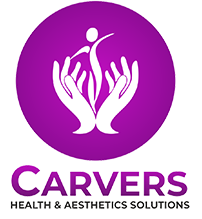Targeted Areas For Liposculpture

Targeted Areas For Liposculpture
Liposculpture increases body contours by removing excess fat. It is mostly used to remove fat from areas that can’t be treated with diet and exercise.The most common areas of the body that liposculpture is actually used for are:
- abs
- back
- “love handles”
- thighs
- arms
- under the chin
You should actually have good elasticity in whatever area is being treated. This way your skin will bounce back and you won’t have additional sagging.
Are There Any Risks Or Side Effects
Complications from liposculpture are rare. The most common side effects are rippled skin as well as lumpiness.If you’ve got any of the following, less common but serious side effects, see your doctor:
- bad reaction to anesthesia
- blood clot or seroma
- permanent changes in skin color
- infection or bleeding
- scarring above or below skin
- changes in sensation in the skin
What To Expect After Liposculpture
After surgery, you will experience swelling and bruising. This is normal and it’ll actually go away after a couple of weeks.Results start immediately right after surgery; however you might not see them right away. The results actually take about six months to become fully apparent. During this time, your body continues to heal as well as readjust.You’ll probably be advised to take one week off from work. Light walking is usually recommended to assist prevent blood clots. You should avoid strenuous activities and exercise for 2 to 3 weeks.
You’ll likely be instructed to wear a compression garment to help the swelling go down.To help maintain results after liposculpture, you need to eat a balanced diet of vegetables, fruits as well as grains.
Preparing For Liposculpture
Your clinic will actually provide you with specific and detailed information to prepare for the surgery or procedure.
In general:
- The doctor will want you to list your medical history.
- Tell your doctor about any medications you’re taking, including supplements.
- Furthermore, tell your doctor if you smoke, have difficulty with blood clotting, have allergies, or have high blood pressure.
Your doctor may tell you to:
- avoid alcohol for the two weeks before and after surgery
- stop smoking 4 weeks before as well as after surgery
- not take ibuprofen or aspirin two weeks before surgery
- decrease your salt intake
- fill your prescriptions before your surgery date
- stop taking herbs and vitamins two weeks before surgery
- drink plenty of water
- arrange for someone to take you home and be with you for the first 24 hours
